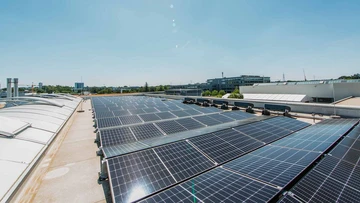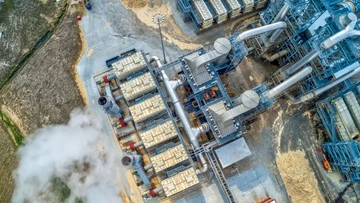Sustainability is a central component of the Dürr Group strategy. Customers are increasingly paying attention to criteria such as energy efficiency, emissions and material consumption when purchasing machinery and equipment. “The trend towards sustainability opens up new business opportunities for us, since our technologies help customers reduce their ecological footprint. At the same time, we want to actively assume our responsibility towards environment, society and employees,” says Dr. Jochen Weyrauch, Deputy CEO of Dürr AG and responsible for sustainability.
The new sustainability report stands for an extended and more in-depth reporting. For example, it provides information on the CO2 intensity of the Dürr Group in the “Value Creation & Supply Chain” field of action. From 2018 to 2020, CO2 emissions per EUR 1 million of sales were reduced by over 13%, while electricity consumption fell by 7%. The report also contains specific information on the four other fields of action in the area of sustainability, which are Management & Governance, Products & Services, Employees & Qualification, and Engagement & Society.
Among the specific sustainability goals mentioned for the first time in the new report is the definition of a climate strategy. It is to be published in the course of this year and will contain reduction targets for the Dürr Group’s CO2 emissions. Other goals relate to areas such as occupational safety, customer satisfaction and the evaluation of suppliers on the basis of social and environmental criteria. In addition, the Dürr Group is working on a sponsoring concept to promote social entrepreneurial initiatives. At the same time, the listed company intends to quickly meet the requirements of the EU’s new sustainable finance taxonomy. It is a sort of sustainability certificate for business enterprises, which is intended to promote investment in “green” technologies, thus accelerating the achievement of environmental policy goals.
The new → Dürr sustainability report is available in German and English. It meets the requirements of the “Core” option of the Global Reporting Initiative (GRI), whose standards are used worldwide and, particularly in Europe, represent the predominant set of rules for sustainability reporting.











